Are you fascinated by the unique concept of container homes? If you’re based in Michigan and considering joining the container home movement, it’s crucial to understand the legal landscape surrounding this innovative housing option.
A container home is a dwelling made from old shipping containers, repurposed for residential use. These homes offer affordability, sustainability, and a modern aesthetic appeal. However, before embarking on your container home journey, it’s important to familiarize yourself with the legal considerations specific to Michigan.
In Michigan, regulations regarding container homes are determined at the local level, meaning there may be variations in rules and permits required depending on the county or municipality you reside in.
While container homes are generally legal in Michigan, certain restrictions and guidelines must be followed to ensure compliance with local building codes and zoning ordinances.
So, whether you’re planning to build a cozy retreat on the outskirts of Grand Rapids or a contemporary urban dwelling in Detroit, it’s essential to acquaint yourself with the specific regulations in your area.
This article aims to provide an overview of the legal considerations surrounding container homes in Michigan, helping you navigate this exciting housing alternative with confidence.
Table of Contents
Are Shipping Containers Homes Allowed in Michigan?
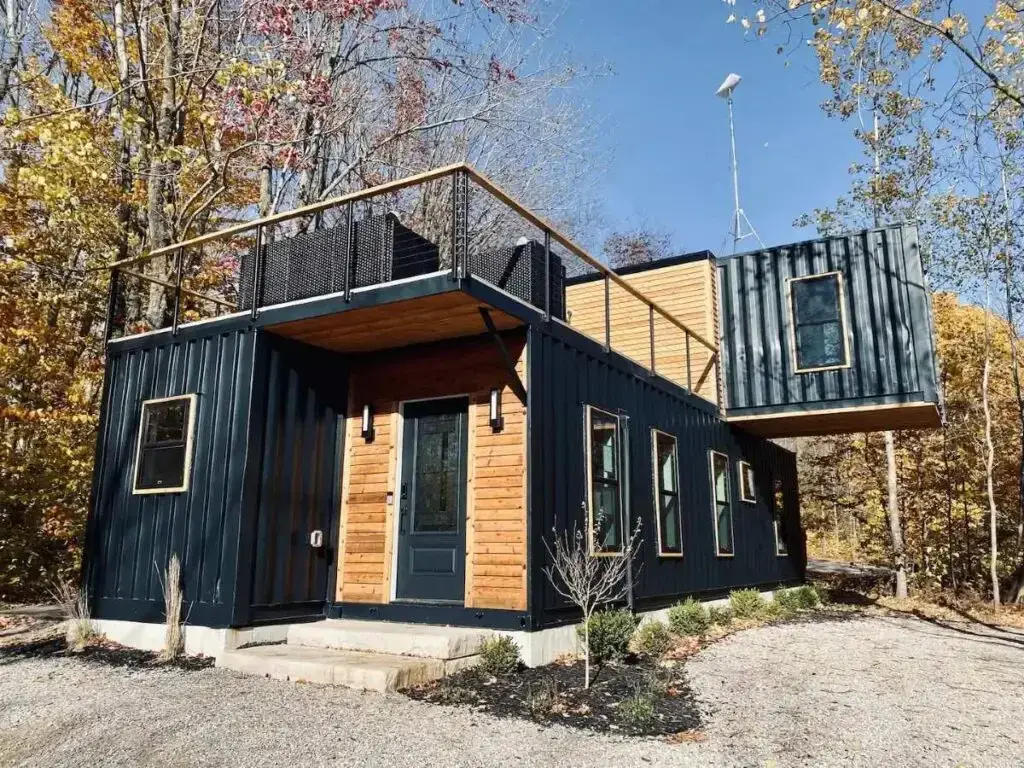
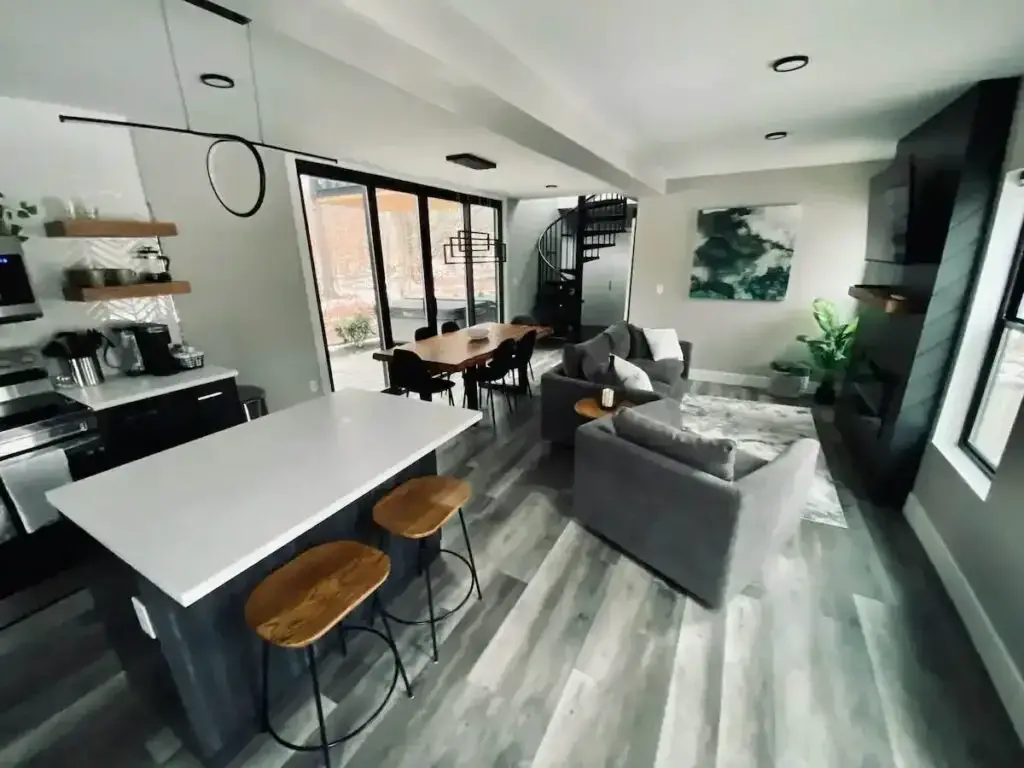
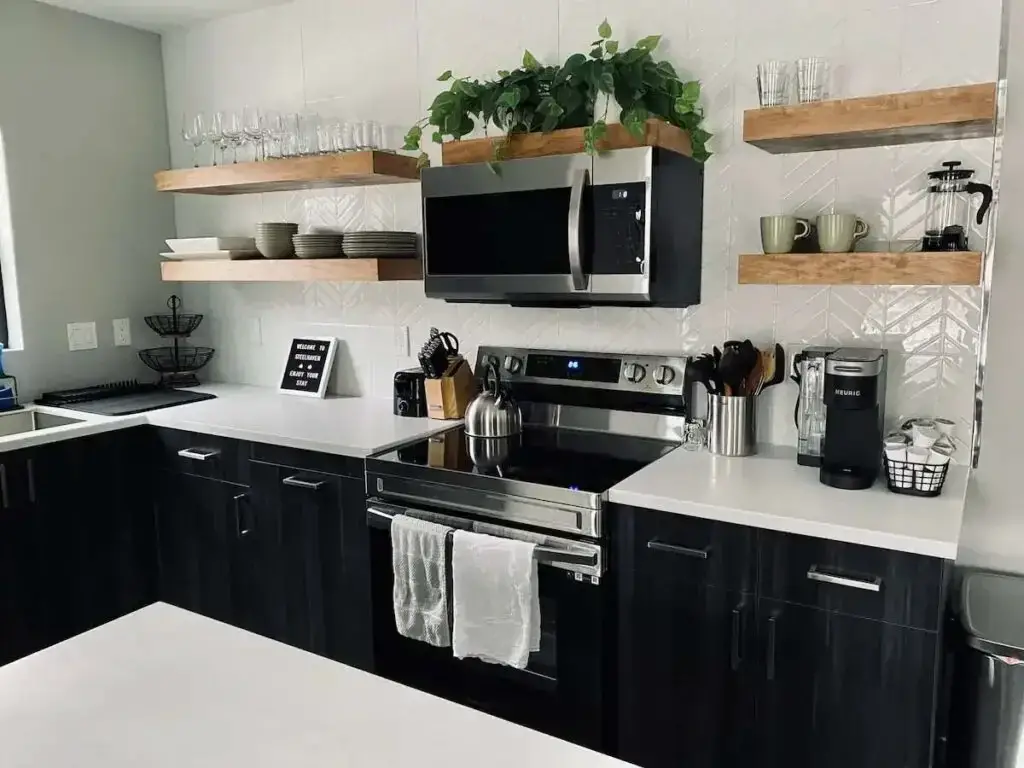

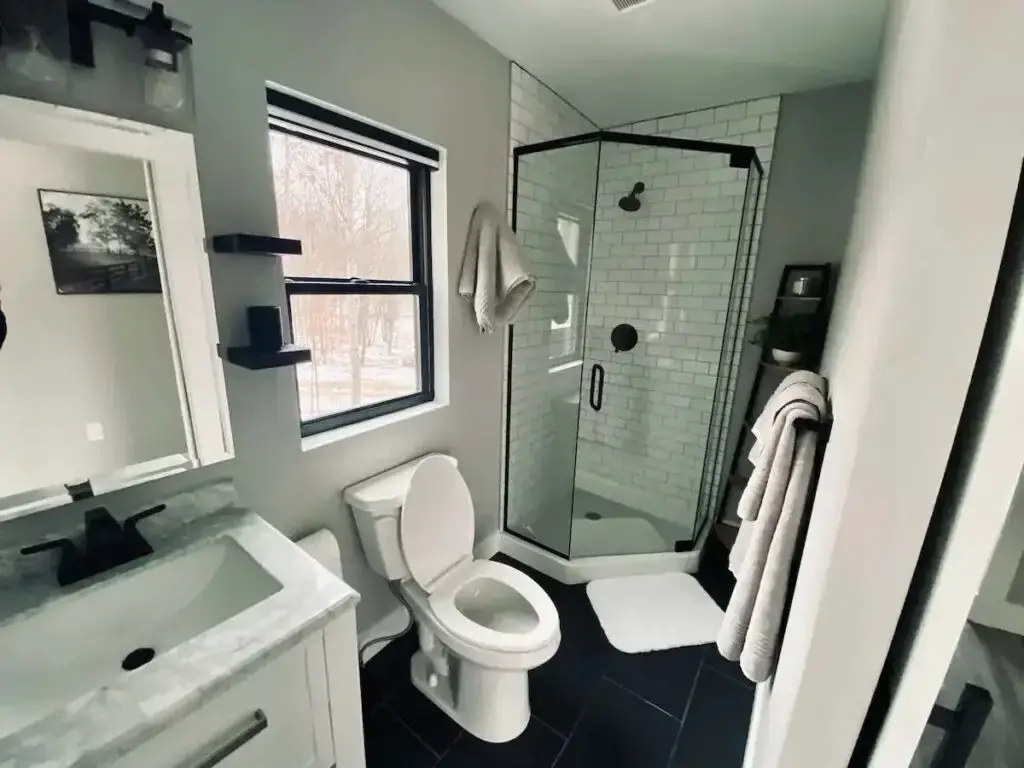
Yes, it’s legal to build a container home in Michigan. Plenty of people have been doing it for years now, enough that we can safely say yes!
Of course, you will need to comply with your area’s relevant building code regulations when constructing a container home. But there aren’t any statewide rules that do not allow the building of shipping container homes in Michigan.
Like traditional brick homes, container homes have procedures that your state needs you to follow. If you ignore or overlook these procedures, they can result in big problems. It is vital to follow these guidelines to avoid awkward or embarrassing situations.
The photos above are from a container home in Michigan know as Steelhaven which is owned by Thomas, aka T.J.
Read More: Amazing cost to build a shipping container home
The Cost of Building a Container Home in Michigan
Michigan’s strategic position in the center of the United States, as well as its large cities and major transportation infrastructure, make it an ideal place to acquire building materials, including empty shipping containers.
One reason that can significantly affect the cost of a container house in Michigan is dealing with cold weather. Depending on your residential area, your roof may have to accommodate snow loads.
Many container home designs use flat roofs to maximize interior space and minimize costs, but this type of design makes the homes vulnerable to heavy snow or ice accumulation during the winter months.
Additionally, you will want to insulate the container home well to keep the interior climate comfortable. And remember: cold weather can cause your home to have excessive condensation, so thoughtful insulation and HVAC design are significant in such environments.
Constructing a shipping container home in Michigan can cost anywhere from $35,000 to $175,000. When you compare the cost of building a traditional home to that of a prefabricated one, it is crystal clear why so many people are turning to pre-built homes. A typical Michigan home costs around $265,000, twice what most prefabs go for.
Read More: 11 mistakes to avoid while building a container home
Overview of Building Regulations in Michigan
Building regulations and codes play a vital role in ensuring the safety, quality, and compliance of construction projects in Michigan.
These regulations are put in place to protect the wellbeing of the residents and maintain the structural integrity of buildings. It is imperative to understand the importance of building codes and zoning regulations when considering alternative dwellings, such as container homes, in Michigan.
In Michigan, the Michigan Residential Code (MRC) serves as the primary regulatory framework for building construction.
This code covers various aspects, including structural design, fire safety, energy efficiency, and plumbing, among others. Compliance with the MRC is crucial for obtaining necessary permits and approvals for alternative dwellings like container homes.
When opting for container homes in Michigan, it is important to be familiar with the permit requirements and building inspections involved. Obtaining a permit is a crucial step in ensuring that the construction of a container home follows all legal requirements and meets safety standards.
The permit process typically includes submitting detailed plans of the proposed container home, along with supporting documents addressing structural stability and energy efficiency.
Building inspections are essential throughout the construction process to ensure compliance with the approved plans and applicable regulations.
These inspections typically focus on various aspects such as foundation, electrical systems, plumbing, and insulation.
By adhering to the proper permit requirements and scheduling necessary inspections, container home builders can ensure that their projects meet all legal obligations and safety standards in Michigan.
Legal Status of Container Homes in Michigan
If you’re considering building a container home in Michigan, it’s crucial to understand the legal aspects surrounding this unique housing option.
While container homes have gained popularity in recent years, it’s essential to navigate through any specific laws or regulations regarding container homes in Michigan.
Understanding the Legality of Container Homes in Michigan
Container homes have become a viable alternative for those seeking affordable and sustainable housing solutions. In Michigan, the legality of container homes is determined by local building codes and zoning ordinances.
Each city or county may have its own regulations that outline requirements for container homes. It’s crucial to research and comply with these regulations to ensure your container home meets legal standards in Michigan.
Explanation of Any Specific Laws or Regulations Regarding Container Homes in Michigan
Michigan does not have specific laws solely focusing on container homes. However, building codes and zoning regulations set forth by local government entities govern the construction of container homes.
Some areas may require a building permit for container homes, similar to traditional homes. Additionally, regulations may specify specific design and construction standards, such as insulation, electrical wiring, plumbing, and fire safety measures. These standards ensure the safety and habitability of container homes in Michigan.
It is advisable to consult with local building authorities or hire a professional contractor familiar with container home construction to understand and comply with the specific laws and regulations relevant to your location in Michigan.
By adhering to these regulations, you can ensure that your container home aligns with the legal requirements of Michigan, offering you peace of mind and a solid foundation for your new living space.
Safety Regulations and Building Certifications for Container Homes in Michigan
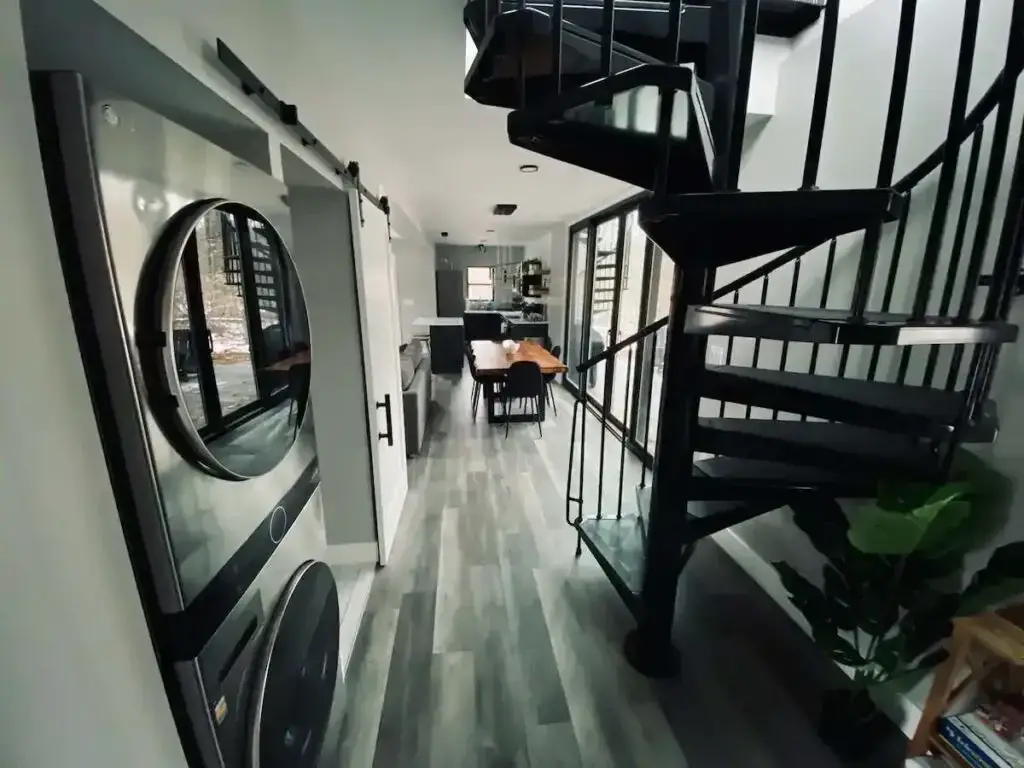
When it comes to building container homes in Michigan, safety is of utmost importance. To ensure the well-being of residents, the state has implemented specific safety regulations and building certifications that must be adhered to.
A. Importance of Safety Regulations for Container Homes in Michigan
Safety regulations for container homes in Michigan serve as a safeguard against potential hazards and ensure that these unconventional dwellings meet the necessary standards.
By adhering to these regulations, residents can have peace of mind, knowing that their homes are constructed with their safety in mind.
B. Overview of the Specific Safety Regulations Container Homes Must Adhere to in Michigan
In Michigan, container homes must comply with a range of safety regulations. These regulations cover various aspects, including electrical systems, plumbing, fire safety, and structural integrity.
For example, container homes must have properly installed electrical wiring that meets the state’s electrical code. Additionally, the plumbing systems must be designed and installed following the applicable plumbing guidelines.
Furthermore, container homes must meet fire safety requirements, which include fire-resistant materials and proper fire exits.
The state also mandates that container home structures maintain their structural integrity, ensuring that they can withstand the various environmental factors Michigan experiences.
C. Explanation of the Building Inspections and Certifications Required for Container Homes in Michigan
Before a container home can be occupied in Michigan, it must undergo rigorous building inspections to verify compliance with safety regulations.
Trained inspectors conduct thorough examinations of the container homes to ensure that all necessary requirements are met.
Additionally, building certifications are required to demonstrate that the container home complies with all applicable regulations. These certifications provide evidence that the home has been thoroughly inspected and meets the necessary standards for occupancy.
They not only serve as proof of compliance but also reassure residents that their homes are safe and authorized by the state.
In conclusion, container homes in Michigan are subject to specific safety regulations and building certifications to ensure residents’ safety.
By adhering to these regulations and obtaining the necessary certifications, container home owners can have peace of mind, knowing that their homes meet the required standards and are legally authorized for occupancy.
Public Opinion and Acceptance of Container Homes in Michigan
The growing trend of container homes has sparked considerable public interest in Michigan. With their unique design and potential affordability, container homes have garnered attention from various communities and individuals.
However, public opinion regarding container homes in Michigan is still divided. While some residents appreciate the sustainable nature and modern appeal of these homes, others express concerns regarding their legality, safety, and overall aesthetics.
Discussion of the Public Perception of Container Homes in Michigan
Container homes are often seen as a creative and innovative solution to the affordable housing crisis in Michigan.
Many residents consider them to be an attractive option due to their potential cost-effectiveness and their ability to repurpose shipping containers.
On the other hand, some individuals perceive container homes as unconventional and believe they might disrupt the architectural integrity of established neighborhoods or communities.
Concerns about their structural stability and long-term durability also contribute to the mixed public opinion.
Overview of Any Challenges or Limitations Faced by Container Homes in Gaining Acceptance in Michigan
Container homes in Michigan face several challenges in gaining wider acceptance. One significant limitation is the lack of clarity in local building regulations, which may vary from one municipality to another. This ambiguity can create obstacles for those interested in establishing container homes.
Another challenge lies in addressing the common misconceptions surrounding container homes, such as their perceived lack of comfort or inadequate insulation. Overcoming these misconceptions is crucial to achieve broader public acceptance.
Explanation of Any Public Initiatives or Efforts to Promote Container Homes as an Affordable Housing Option in Michigan
In recent years, several initiatives and efforts have emerged to promote container homes as an affordable housing option in Michigan.
Non-profit organizations, government agencies, and community groups have come together to educate the public about the benefits of container homes and advocate for clearer regulations.
Additionally, some municipalities have introduced pilot programs to encourage the construction of container homes by providing incentives or support.
These initiatives aim to showcase container homes as a viable solution for addressing affordable housing needs while promoting sustainability.
Case Study: Container Homes in Michigan
A. Showcase of Successful Container Home Projects in Michigan
Container homes have gained popularity in Michigan, and several successful projects have been completed, proving their feasibility and efficiency.
One such project is the Luxury Shipping Container House in Royal Oak, Michigan. This innovative community consists of 20 container homes, providing affordable housing to residents while promoting sustainability.
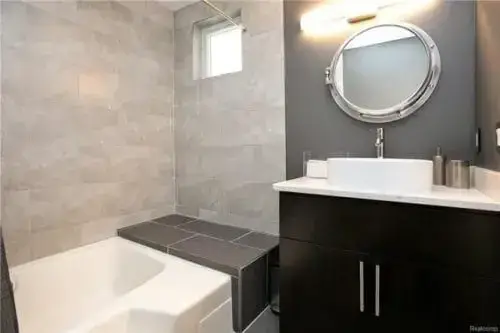
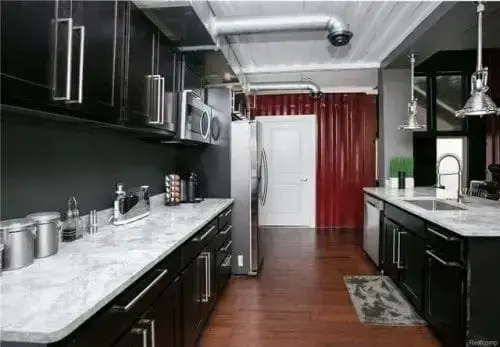
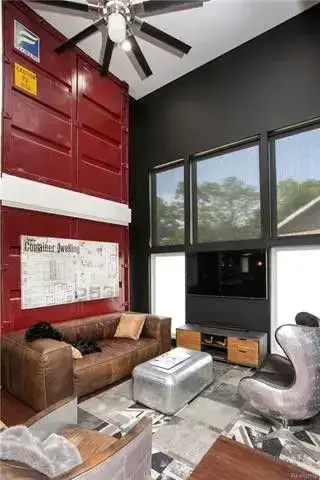


Another remarkable container home project is the 3 Bedroom Shipping Container Home, Bruce Township, Michigan. This three-bedroom Michigan container home showcases the versatility and aesthetic appeal of container homes, offering a unique and modern living experience.
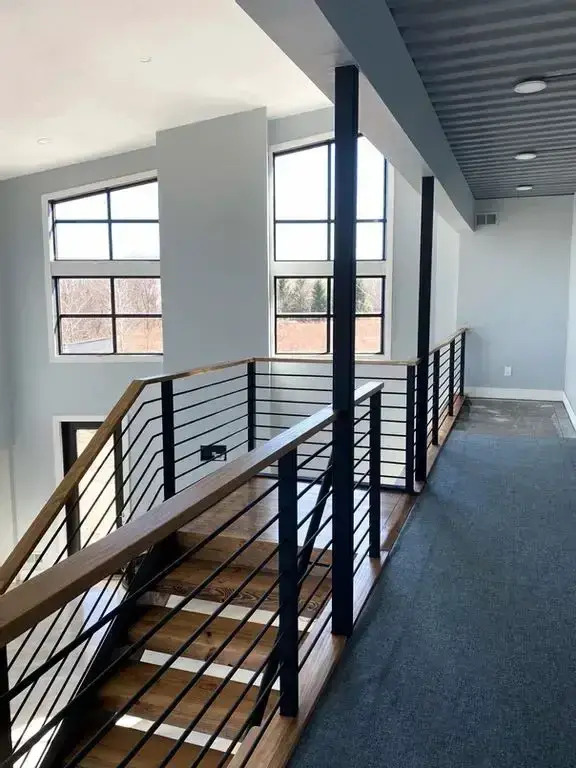
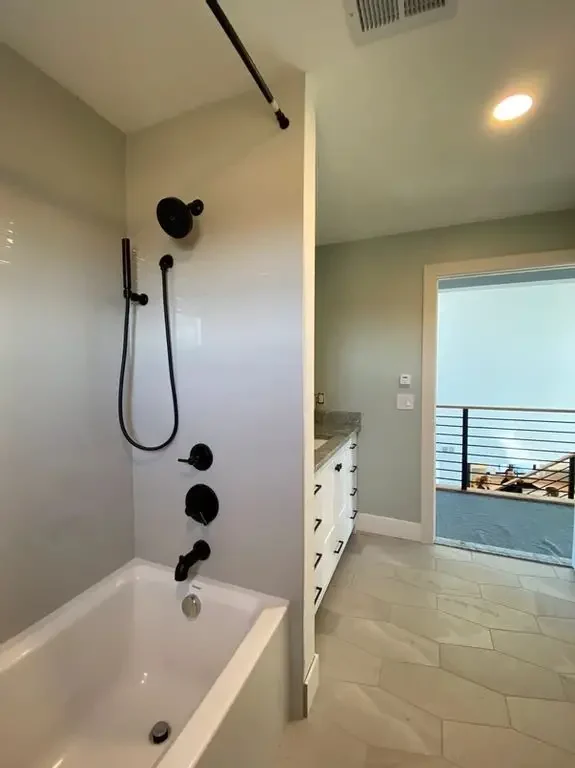

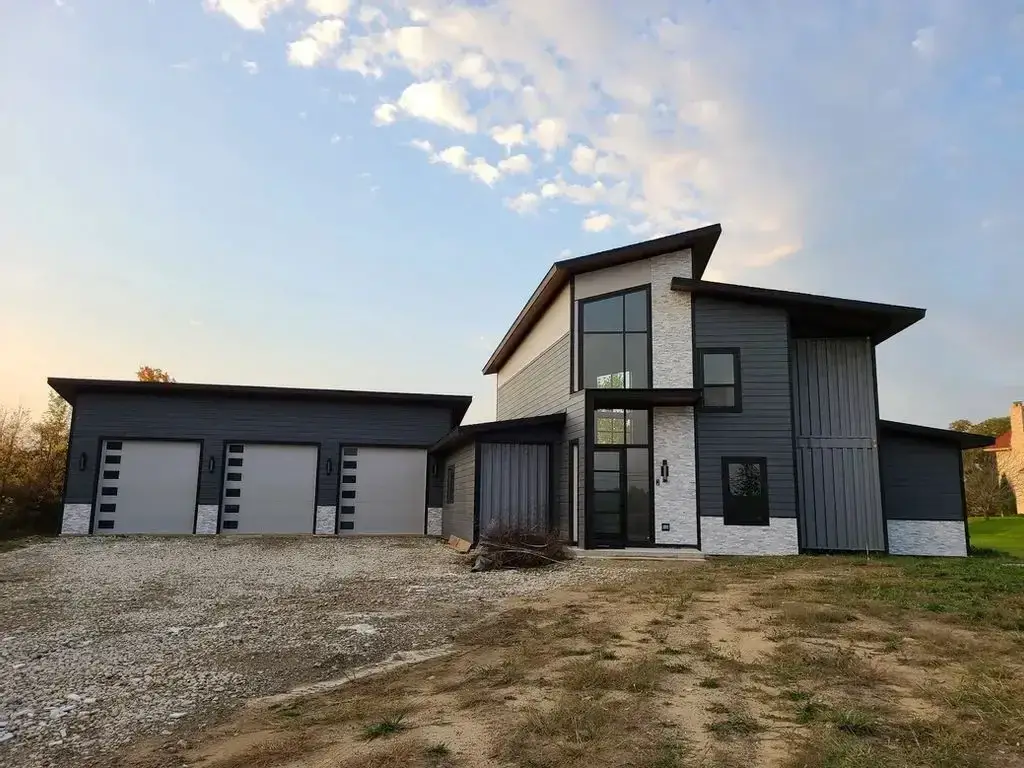
B. Demonstration of How Container Homes Can be Integrated Into the Community While Complying With Building Regulations
Container homes in Michigan are designed to blend seamlessly into existing communities while adhering to building regulations.
The Kaline Squared in Corktown is an exemplary demonstration of this integration. This community showcases container homes that have been modified to meet safety requirements and zoning regulations, ensuring that they comply with Michigan’s building standards.
Integrated container homes, such as those found in Midtown Detroit’s True North District, have successfully revitalized neighborhoods while adhering to legal frameworks and community aesthetics.
C. Presentation of the Benefits and Advantages of Container Homes in Terms of Sustainability and Affordability in Michigan
Container homes offer numerous advantages in terms of sustainability and affordability in Michigan. The Three Squared in Columbus, Ohio, for example, showcases the use of repurposed containers, reducing waste and promoting eco-friendly living.
Additionally, container homes are known for their cost-effectiveness, making them a viable solution to address the affordable housing crisis in Michigan.
Container homes are also energy-efficient, as demonstrated by the Off-Grid Container Cabin in the Upper Peninsula. This project uses renewable energy sources and sustainable insulation materials to minimize environmental impact while providing comfortable living spaces.
Affordable Housing Options and Sustainable Solutions in Michigan
A. Overview of the affordable housing crisis in Michigan
Michigan is currently facing a significant affordable housing crisis. As housing prices continue to rise, many residents are struggling to find affordable homes.
This crisis has had a severe impact on low-income families, individuals, and seniors, making it difficult for them to secure safe and stable housing.
B. Explanation of how container homes can offer a sustainable and cost-effective solution
Container homes provide a sustainable and cost-effective solution to the affordable housing crisis in Michigan. These homes, made from repurposed shipping containers, offer an affordable alternative to traditional housing options.
Container homes can be built at a fraction of the cost of conventional homes, making them an attractive option for those on a limited budget.
Furthermore, container homes are eco-friendly and sustainable. By repurposing shipping containers, we reduce waste and minimize the environmental impact of construction. Container homes can also be designed to be energy-efficient, lowering utility costs for residents and contributing to a greener future.
C. Discussion of any government programs or incentives available to promote the use of container homes for affordable housing in Michigan
The government of Michigan recognizes the potential of container homes to address the affordable housing crisis and has implemented several programs and incentives to promote their use.
One such program is the Affordable Housing Initiative, which provides grants and financial support to organizations and developers that build affordable container housing projects. This initiative has already led to the successful completion of several container home communities throughout the state.
Additionally, there are tax incentives available for those who choose to invest in container homes. These incentives include reduced property taxes and federal tax credits for environmentally-friendly housing options, further encouraging the development of container homes as a sustainable solution.
Where Can I Build a Container Home in Michigan?
You can build a shipping container home on your land in Michigan. If you own a piece of property in the state, creating an eco-friendly dwelling made from recycled containers could be feasible for you.
One thing you must ensure when building a container home in Michigan is that all the codes and laws are followed.
Finding a Builder for Your Shipping Container Home
When you start your quest to build a container home, one of the first people you should hire is a builder. While it’s possible to do some of the work yourself, professional help will be needed at various stages in the project, and expertise is critical when hiring someone for this job.
Although many builders are experienced with traditional construction techniques, it’s best to find one specializing in container homes.
When choosing a builder, you should look at online reviews of their previous work. This will help you get a glimpse of how the person works with clients regularly. When you have a perfect working relationship with someone, it’s easy to work well together.
Read More: Ultimate Guide To Best Container Home Builders In Texas
Conclusion
In conclusion, container homes are a legal housing option in Michigan, provided they adhere to the building regulations and safety certifications outlined by the state. These unique dwellings offer a range of benefits, including affordability, sustainability, and flexibility.
However, it is important to consider the challenges associated with container homes, such as limited space and potential difficulties in obtaining financing. Despite these challenges, container homes have gained acceptance and popularity among individuals seeking affordable housing options.
If you are interested in exploring container homes as a legal housing option in Michigan, we encourage you to research local regulations, consult with experts in the field, and connect with individuals who have successfully built container homes in the state.
By taking these proactive steps and staying informed, you can make an informed decision about whether container homes are the right choice for you and your unique housing needs in Michigan.
Read More on Solar Power For 1.5 HP Pump: The Best In Market


